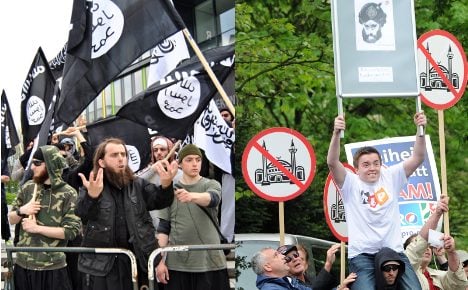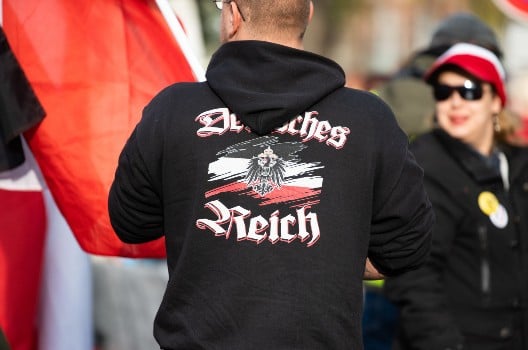Interior Minister Hans-Peter Friedrich recently argued that “taking the worries [about immigration] of the people seriously” was necessary in order to keep the far right out of the German parliament.
Yet the right-wing extremists have little chance of making a significant impression electorally – and this should relieve pressure on mainstream parties to follow them – Professor Hajo Funke from Berlin’s Free University told The Local.
Talking about the foiled attack by Salafists on the head of the xenophobic Pro NRW party Markus Beisicht, Funke said both extremes should be the business of the German security services and police forces – and less of a concern for political parties.
But he said the Salafist groups on the one hand and the far-right groups on the other were incapable of securing significant public support in Germany.
“The Salafist groups are dangerous and prepared to use violence and must be stopped by the police, that much is clear. But neither they nor the Pro Deutschland groups have enough public support to make much of an impact.”
Extremist Salafists have come to the attention of security services for their anti-democratic preaching. They have been particularly provoked by the Pro NRW party in the state of North Rhine-Westphalia, part of the national anti-Muslim Pro Deutschland grouping.
Pro NRW held demonstrations outside mosques in Bonn and Cologne last year, when they held up posters of offensive cartoons showing Islam’s Prophet Mohammed. Violent clashes ensued and one man from the Salafist side stabbed two police officers. He was jailed for six years in October.
But despite such alarming scenes, Funke said neither side had much of a chance of making a wider political impact.
“The Pro NRW and Pro Deutschland groups are too marginalized, too isolated and too far right,” he said.
“They fall into the trap that all far-right parties in Germany fall into, they are too clannish and far right to have any electoral success.”
This means that the mainstream parties were not likely to be tempted to move to the right to take ground from the Pro Deutschland xenophobes, he suggested.
“Why would they? There is nothing to be gained there, no votes,” he said.
“It is a question for the security executive to do their job properly, such as banning the three Salafist groups this week. The question remains whether this is effective.”
He said banning the Muslim extremists was correct, but that there was little hope of doing the same to the neo-Nazi NPD party because, he said, the security forces were incapable of making sure there were no informers in top positions, which is what stymied a previous attempt to ban the party.
He also said Germany’s domestic intelligence agency, the Verfassungsschutz, seemed in its current form unable to handle double extremist threat from the Islamists and the far right at the same time.
Hannah Cleaver



 Please whitelist us to continue reading.
Please whitelist us to continue reading.
Member comments